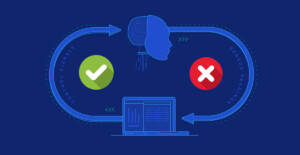What Is the Dark Web and How Can It Impact Your Business?
You may have heard of the dark web before, but where exactly is it? And how can it impact your organization? In this article, we shed light on these mysterious spaces.
You probably already associate the dark web with a wide range of criminal activities, and rightly so. Whenever a company suffers a data breach, their information almost always ends up on the dark web. And the same goes for individuals’ stolen personal information.
As the dark web grows, the threat to your business rises as well. These days, even a non-technical person can cripple your business with a denial-of-service attack by renting botnet time on the dark web!
To protect your business, you need the right information. This article shares what you need to know to protect your data from dark web criminals.
Watch this short video to get started on what is the dark web:
Where Is the Dark Web?
What comes to mind when you think of the World Wide Web? It’s probably something to do with message boards, websites, marketplaces, and so on. However, this only makes up one of the three main layers of the web-the surface web. The other two are the deep web and the dark web.
Right now, you’re on the surface web. If you signed in to your email account, for example, you’d end up on the deep web. Simply put, the deep web stores data protected by passwords such as email and bank accounts, as well as online health records.
While the deep web contains the dark web, the main point of difference is that traditional search engines can’t find sites on the dark web.
How Does the Dark Web Work? Websites on the dark web end in “.onion” instead of the regular “.com” or “.gov” endings. You need a special browser to find sites on the dark web. A common one is The Onion Router, which is abbreviated as Tor. Much like Onion, which has several layers, Tor has multiple encryption layers to guarantee user privacy and anonymity.
How Does Your Personal Information Come Up On the Dark Web? If you find some of your information on the dark web, it’s likely a hacker, or some other cybercriminal stole it and intends to sell it. Such bad actors have a broad scope of strategies and techniques for acquiring your personal data without your permission, such as:
- Hacking into accounts or using malware to steal passwords.
- Phishing scams and SIM swaps.
- Going through your trash to find documentation containing personal data.
How Can You Limit Your Organization’s Exposure to the Dark Web? While it may not be possible to avoid dark web threats altogether, there are steps you can take to mitigate the risks. Here’s what you have to do:
- Secure your data using up-to-date encryption strategies. This is because encryption approaches quickly become obsolete and need to be updated regularly.
- Monitor the darknet as a whole for potential threats to your business. Pay special attention to Darknet Market Places (DNMs), as this is where most of your stolen information will show up.
- Prohibit your staff from using Tor browsers since a malicious employee could use it for auctioning off your sensitive data as insider information.
- Monitor your network devices for any dark web access.
- Come up with a clear response plan describing how you’ll handle legal concerns, clients, and partners should your information appear on the dark web.
- Get in touch with a reputable managed IT services provider (MSP) to assist with monitoring, recognizing, and responding to dark web threats. Ensure you partner with an MSP that provides dark web monitoring as part of their cybersecurity offerings.
Looking for Reliable IT Support to Defend Your Business Against the Dark Web?
Our cybersecurity experts at tech42 are eager to help you protect your Scranton & Wilks-Barre business from the dark web.
Contact us now to schedule your initial dark web consultation!







